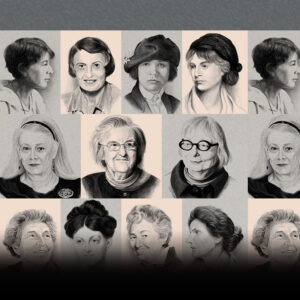There are two core questions when it comes to thinking about women in the classical liberal tradition. First, what have women contributed to classical liberalism as a body of thought? Second, what does classical liberalism as a set of ideas have to say about the question of women’s rights?
I recently received an email asking where an interested undergraduate might start reading up on these issues, so I decided to put together a short, easy reading list for anybody looking to get started thinking about women’s rights in the classical liberal tradition.
First, start off easy and inexpensive with the Fraser Institute’s The Essential Women of Liberty. I’m a little biased because I contributed the chapter on Elinor Ostrom, but overall the volume is well-written, well-researched, and informative. Further, the fact that the whole book clocks in at under 150 pages and the chapters can be individually downloaded make this an excellent resource both in the classroom and for those seeking a broad overview to start filling in their own gaps.

The beginning chapters of the book are an excellent introduction to “the woman question” in classical liberal thought: do we owe equal rights and consideration to these creatures who seem so different than ‘us’ (i.e., male intellectuals)? Sylvana Tomaselli’s chapter on Mary Wollstonecraft and David Levy and Sandra Peart’s chapter on Harriet Martineau are particularly valuable given the importance of Wollstonecraft and Martineau’s contributions relative to the amount of attention they’ve received. Similarly, the chapters on Mary Paley Marshall, Rose Director Friedman, Isabel Paterson, and Anna Schwartz do a superb job educating on the sometimes forgotten contributions of women to 20th century economic thought.
Second, although there are many important and rich original texts on these questions, there are two absolutely essential (says me) pre-20th century classical liberal texts on women’s rights. The first of these is Mary Wollstonecraft’s Vindication of the Rights of Women. A key theme to read for in Wollstonecraft’s text is the question of how it shapes and changes a person to live under conditions of subjection and unfreedom, how it dulls the potential for that person to contribute to the world and to really be her best. In addition to her classical liberal perspective, Wollstonecraft is considered something of a mother of modern liberal feminism in general. As such her work suggests that there is a strong argument to be made for women’s liberation having a strong grounding in classical liberal theory.
The second essential early text is John Stuart Mill’s The Subjection of Women. Although it is not often labeled as such, I consider this to be important as an early institutionalist approach to questions of women’s rights. Mill focuses on the idea that women and men have often been governed by alternative sets of rules and laws, and that this has naturally—but often for the worse—shaped the choices and potential of people of both sexes.
After those foundations are covered, there are a number of directions one could go to carry this inquiry about women and classical liberalism through the 20th and into the 21st century. In addition to the chapters in Essential Women of Liberty on more recent contributors like Jane Jacobs, Elinor Ostrom, and Deirdre McCloskey, Wendy McElroy compiled a 2002 volume titled Liberty for Women: Freedom and Feminism in the Twenty-First Century that connects the classical liberal foundations of women’s rights to a wide range of contemporary applied topics. In addition, there has been a more recent resurgence of interest in questions related to the relationship between economic freedom and women’s well-being from Rosie Fike, Chelsea Follett, myself, and an ever-increasing number of others.
Who else would you add to this list of places to start reading about women in the classical liberal tradition?
[Editor’s Note: We also suggest the current Liberty Matters Forum at the Online Library of Liberty, Why Do We Need Feminist Economics? to which Lemke contributes.]
Jayme Lemke is a Senior Research Fellow and Associate Director of Academic and Student Programs at the Mercatus Center at George Mason University and a Senior Fellow in the F.A. Hayek Program for Advanced Study in Philosophy, Politics, and Economics.

READER COMMENTS
David Boaz
Mar 28 2023 at 8:31pm
Joan Kennedy Taylor, Reclaiming the Mainstream: Individualist Feminism Re-discovered
Wendy McElroy, Freedom, Feminism, and the State
Timothy Sandefur, Freedom’s Furies: How Isabel Paterson, Rose Wilder Lane, and Ayn Rand Found Liberty in an Age of Darkness
James Garfield
Apr 3 2023 at 6:07pm
Haven’t read it myself, but Margaret Fuller’s WOMAN IN THE 19TH CENTURY is supposed to be a historically important text. Fuller was a Transcendentalist, and took part in that group’s individualist/classical-liberal tendencies.
Comments are closed.